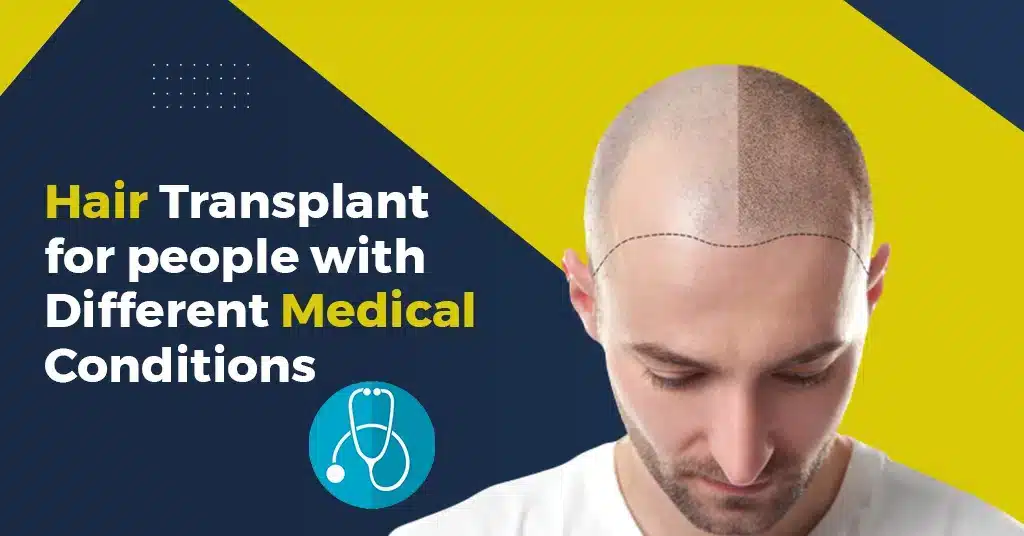For those with a variety of medical issues, hair transplant surgery may be a good option, but the procedure’s acceptability will depend on the condition in question and how it affects hair loss. A hair transplant may be explored for the following medical conditions:
1. Androgenetic Alopecia (Genetic Hair Loss):
Androgenetic alopecia is a hereditary disorder that causes baldness and hair thinning in both men and women. Hair transplants are frequently used to treat this condition. Since the hair follicles on the sides and back of the head are genetically resistant to hair loss, transplants are typically successful in these situations.
2. Alopecia Areata:
Alopecia areata is an autoimmune disease that results in areas of hair loss. If a person has stable alopecia areata—that is, their hair loss has not increased over the course of at least a year—hair transplant surgery may be an option. On the other hand, the transplant’s outcome may vary.
3. Scarring Alopecia:
Hair transplant surgery is occasionally used to treat scarring alopecia, which can be brought on by a variety of illnesses such burns, injuries, or inflammatory skin disorders. However, the degree of scarring and the accessibility of healthy donor hair are key factors in the outcome.
4. Hormonal Imbalances:
Hair loss can be brought on by hormonal imbalances, such as those brought on by thyroid issues or polycystic ovarian syndrome (PCOS). In order to address the permanent loss of hair, hair transplant surgery may be explored if the underlying hormonal condition has been treated and resolved.
5. Traumatic Hair Loss:
If there is a sufficient supply of donors and the patient is in good general condition, hair transplant surgery can frequently be used for treating hair loss brought on by burns, accidents, or surgical procedures.
6. Traction Alopecia:
If affected hair follicles are still viable, hair transplant surgery may be done to treat traction alopecia, a condition brought on by tension or pulling of the hair. To stop additional hair loss, it is important to treat the underlying cause (tight hairstyles, for example).
Important Considerations:
- Consultation with a Specialist: It’s essential to consult with a qualified dermatologist or a hair transplant specialist who can assess your specific condition and determine the feasibility of the procedure.
- Overall Health: The individual’s overall health and suitability for surgery are critical factors. People with certain medical conditions or those taking specific medications may not be ideal candidates for surgery.
- Expectations: Realistic expectations are crucial. While modern hair transplant techniques can provide natural-looking results, it might not restore a full head of hair, especially in advanced cases of hair loss.
To make an informed decision about whether hair transplant surgery is appropriate for your particular medical situation, you should always be open and honest with your healthcare practitioner about your medical history, medications, and concerns.
Marvelous Aesthetics is known for its excellent customer service, affordable costs, and high quality of care. The clinic’s staff of knowledgeable and skilled experts is always available to assist patients with their hair transplantation requirements. Marvelous Aesthetics is an excellent choice if hair transplant surgery in Varanasi is something you are thinking about. The staff at the clinic is committed to giving patients the finest outcomes possible, and they provide a large selection of procedures.

